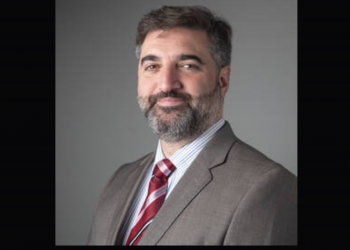Global Governance Must be an Unfolding, Generational Process
By Tiago Masrour
A profound, but mindful, shift in global culture is needed. Within the rich diversity of the human family, this shift requires an increasingly shared vision, together with convictions around critical values such as world citizenship, equality, justice, cooperation, the elimination of prejudice, and the promotion of integration. It calls for a process-driven approach involving new practices and the development of tools and technology that allow a systematic mode of functioning. Faced with sobering global challenges, urgency to act must also be paired with a humble attitude of learning and a long-term perspective that allows the gradual flourishing of results, generation after generation.
Global governance has a key role to play in identifying both destructive and integrative processes at work in the world and in promoting efforts to respond with increasing wisdom, maturity, and effectiveness. The Sustainable Development Goals (SDGs), the Millennium Development Goals (MDGs) before them, and similar collective enterprises are powerful expressions of our growing capacity to pursue such an all-encompassing vision. In the two decades since the launch of the MDGs, an entire generation has been raised and is increasingly assuming roles of leadership around the world. As this global cohort comes into its own, important questions should be addressed: How well are the paradigms, underlying assumptions, and objectives of current educational processes suited to today’s needs? Appreciation of goals such as promoting gender equality or reducing climate change has grown, but how effectively are the systems we have established channeling those principles into lived reality?
Without a doubt, there have been promising changes—the emergence of new economic models and transdisciplinary approaches to human well-being, for example, or exploration of new indicators to complement GDP. But, in many cases, the core of our upbringing has mostly been the same for generations—and this is no longer sustainable in our rapidly-evolving world.
From a historical perspective, the prospect of governance at a truly planetary level, devoted to advancing the well-being of all, represents a new stage in the organization of human affairs—one that acknowledges our interdependence and the oneness of our existence. This new reality requires a never before seen revision of attitudes, behaviors, and mental models, to overcome past limitations and fragmentation, allowing the establishment of sound foundations. Our present circumstances call for a disciplined, intense, and systematic approach.
What if global governance systems focused on recasting educational frameworks and learning systems, placing meaningful participation, representation, and diversity at the heart of every national curriculum? What if priority was given to forging a common understanding of the requirements of a changing age and growing recognition of our oneness and interdependence? What if the reconfiguration of the essential relationships between individuals, institutions, and communities—based on the application of these shared values and ethical principles—was central to the approach under consideration?
Transforming centuries-old mindsets and behaviors requires more than laws and constitutional amendments, however necessary these might be. We need to reconfigure spaces of participation, consultation, and decision-making, as well as the relationship between key stakeholders, to promote a greater inclusion of voices and experiences from every region of the globe. Also important will be considering alternative approaches which have not typically been prioritized in regional and international dialogues. Lessons learned in Latin America, for instance, are offering promising models for new forms of education and a path to advancing culture in constructive ways which systems of global governance could benefit from. Together with opening new perspectives on our common future, it may well be a source of renewed trust and hope for everyone.
Tiago Masrour is Regional Representative of the Bahá’í International Community to ECLAC/CEPAL
